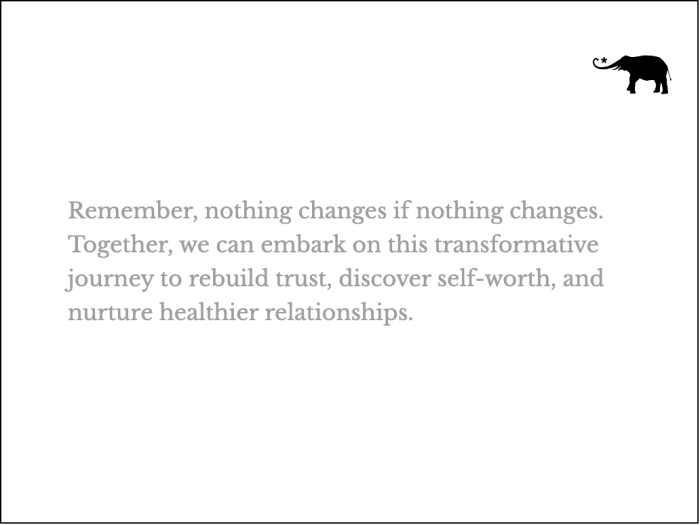Throughout our lives, relationships form the foundation of our interactions—from family members to friends, teachers, colleagues, and partners. Positive relationships are built on trust, respect, kindness, and acceptance.
Feeling of having a purpose in life, having someone to go to when you need a hug or some advice. This is vitally important for our healthy mindset and our all-around wellbeing and health. Being encouraged from an early age to understand your emotions and validate them is important.
However, many individuals I encounter within my practice struggle with trust due to past experiences of mistreatment and neglect, leading to self-doubt and anxiety.
This can stem from childhood, negative school experience and the dreaded playground, unhealthy relationships. This destroys their confidence; self-esteem makes matters so much worse for them and at times they go on a destructive journey creating more issues for themselves. The abuse can be locked away so far away that they get on with life and then in adult life there are triggers. People feel belittled, ugly, overthinking and anxiety can take over, flashbacks to the abuse and fear sets in. Self-doubt also sets in that creates a vision that “they are not good enough”.
So how do we get that person feeling good about themselves again and in control of their wellbeing?
The journey towards healing and regaining control of wellbeing starts by addressing anxiety and developing coping mechanisms. Here are a few things that can help.
Grounding techniques
Grounding techniques and audio exercises help you to feel more at ease in social settings, breaking free from fight or flight responses. This helps because it calms the nervous system and can give you something else to focus on.
Journalling
Another powerful tool is specific journaling, focus on the positive aspects of your life, and write until you feel like there is nothing else to write. This helps by replacing critical thoughts with self-affirming beliefs. This helps to work on limiting beliefs shaped by past trauma, helping you shift from “I’m not good enough” to “I am good enough.”
Over time, the newfound self-acceptance and confidence lead to improved sleep and better control of anxiety. With these transformations, you can assert yourself and face life’s challenges with resilience.
While trust issues may persist, changing your self-perception and values creates a profound impact. Neuro-Linguistic Programming empowers individuals with daily strategies, enabling you to cherish and build upon small positive changes every day.
Remember, nothing changes if nothing changes. Together, we can embark on this transformative journey to rebuild trust, discover self-worth, and nurture healthier relationships.
Jennifer Balfour
Jennifer Balfour is a Self Belief, Mindset and Confidence Life Coach who uses neuro linguistic programming and time line therapy to support her clients in overcoming trauma that may be holding them back and impacting their lives.

 Share on bsky
Share on bsky





Read 0 comments and reply